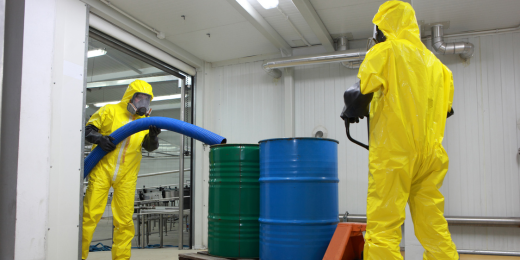What Does Reclaim Waste Do?
What Does Reclaim Waste Do?
Blog Article
Getting The Reclaim Waste To Work
Table of ContentsThe Facts About Reclaim Waste RevealedReclaim Waste Can Be Fun For EveryoneThe Single Strategy To Use For Reclaim WasteSome Known Details About Reclaim Waste Some Known Details About Reclaim Waste
Residential sewage waste refers to the waste and products from a residential septic storage tank. The proper monitoring and disposal of domestic sewage waste require fluid waste to be moved to a sewage therapy plant where the proper approaches and tools are applied to cleanse and dispose of waste.
Business waste commonly consists of potential dangers, such as combustible materials or a mixture of fluid and strong waste products, and requires a much more innovative and in-depth disposal procedure. The disposal of business waste typically includes the filtering of waste before transportation to make certain risk-free and correct disposal. Industrial waste is developed from by-products and drainage of industrial procedures and production.
This sort of waste can not use the exact same sewage management transport or procedures as septic or industrial fluids. The commercial waste monitoring procedure requires the evaluation and testing of liquid waste prior to it undergoes the disposal process (liquid waste removal). Overflow waste is the liquid waste that originates from runoff and excess stormwater in very booming areas or cities
Runoff waste can cause contamination and flooding otherwise dealt with appropriately. Find out more regarding sewage system cleansing and waste monitoring. Making sure correct waste management can protect against catastrophes and reduce environmental damage. Both individuals in domestic settings and specialists in industrial or manufacturing industries can gain from comprehending the processes and regulations of fluid waste monitoring.
Reclaim Waste - The Facts
Get in touch with PROS Providers today to find out regarding our waste administration and disposal solutions and the correct ways to take care of the fluid waste you produce.
(https://soundcloud.com/reclaimwaste1)This so-called 'wastewater' is not only a vital resource but, after therapy, will certainly be released to our land, waterways or the ocean. Used water from toilets, showers, bathrooms, kitchen sinks, laundries and commercial procedures is understood as wastewater.

water used to cool down machinery or tidy plant and equipment). Stormwater, a kind of wastewater, is overflow that flows from farming and urban areas such as roofs, parks, gardens, roads, paths and seamless gutters right into stormwater drains, after rainfall. Stormwater moves Get More Information without treatment directly to neighborhood creeks or rivers, eventually reaching the sea.
An Unbiased View of Reclaim Waste
In Queensland, the majority of wastewater is treated at sewage therapy plants. Wastewater is delivered from residential or industrial sites with a system of sewers and pump stations, recognized as sewerage reticulation, to a sewer therapy plant.
The Division of Natural Resources suggests neighborhood governments about handling, operating and preserving sewage systems and therapy plants. In unsewered locations, local federal governments may require householders to set up private or house sewer therapy systems to treat domestic wastewater from commodes, kitchen areas, bathrooms and laundries. The Department of Natural Resources authorises using house systems when they are verified to be effective.
The majority of stormwater gets no therapy. In some new communities, therapy of some stormwater to get rid of litter, sand and crushed rock has begun making use of gross pollutant catches. Wastewater treatment happens in 4 phases: Removes solid matter. Bigger solids, such as plastics and various other items wrongly discharged to sewage systems, are removed when wastewater is gone through displays.
Wastewater after that moves right into big storage tanks where solids work out and are eliminated as sludge. Grease and residue are skimmed from the surface area. Utilizes small living microorganisms knows as micro-organisms to damage down and remove continuing to be dissolved wastes and fine fragments. Micro-organisms and wastes are integrated in the sludge. Removes nitrogen and phosphorus nutrients that could cause algal blossoms in our rivers and intimidate marine life.
What Does Reclaim Waste Mean?
Nutrient removal is not offered in any way sewage therapy plants because it needs costly specialized equipment. It is becoming extra usual in Queensland. Clear fluid effluent generated after therapy may still include disease-causing micro-organisms. If this effluent is released right into rivers such as rivers or the sea, the micro-organisms will ultimately pass away out.

Most wastewater moves into the sewage system. Under the Act, local federal governments administer approvals and licences for ecologically pertinent tasks (Ages) entailing wastewater releases that may have a neighborhood effect.
Fascination About Reclaim Waste
Otherwise, examples are considered lab evaluation. Often numerous examinations are needed to establish the levels of each of the different toxins such as oils, hefty metals and pesticides in water. Surveillance supplies accurate info regarding water high quality and can verify that permit conditions are being met. The information obtained with tracking offers the basis for making water high quality decisions.
Report this page